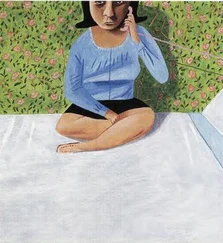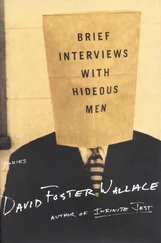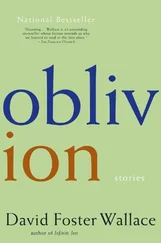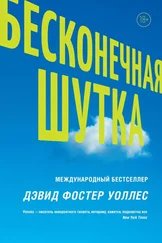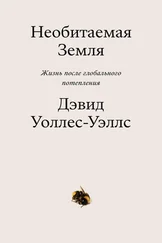“All of our living relatives reside in Hanyang, which is a district of Wuhan. I believe he spent a few days staying with our mother, and a few days sightseeing. He had never seen the Three Gorges Dam, and I believe he took a river cruise from the dam, upstream, to the gorges.”
“He travelled to London next?”
“That is so. He travelled by train to Shanghai and flew to London.”
“Please let me confirm I have understood the dates correctly,” said Peri, running a finger down the pad on which she was taking notes. “He would have arrived in China – in Shanghai – on the tenth of May. He took the train to Wuhan, arriving on the eleventh of May. He stayed in Wuhan until the seventeenth, then joined the river cruise to the gorges. He left the cruise ship on the twentieth, and immediately travelled to Shanghai by train, arriving on the twenty-first, and flew to London, arriving there on the twenty-second.
Chen Xiaoming frowned for a minute, and then nodded. “You have been most diligent,” he said.
She half-turned so she could see Mr Yang. “Colonel Li has been most diligent,” she corrected Chen. Yang was carefully keeping his face blank, but she was sure there was the slightest of reactions to her use of Li’s military rank. Definitely a spook, she thought. And he’s senior enough to know Li.
“I understand Major Chen stayed at your apartment in London, Mr Chen?” she continued.
“He did. But only for three nights. He left me on May twenty-fifth.”
Peri leaned across the table. “Why was his stay so short?” she asked. “His return flight to New York was set for May thirtieth. Did you have a disagreement of some kind?”
Chen leant back and tried to look relaxed. “On the contrary, our time together was most agreeable.”
“So, no disagreement, but nevertheless, he left earlier than planned. When in Wuhan, he also left your mother’s earlier than planned.”
“He always wanted to visit the Yangtze gorges…”
“No, he turned up at the last minute and paid in cash for that river cruise. As I said, Ms Li has been most diligent.” She turned to face Mr Yang again, and took a punt on his rank. “Major Yang, I was assured by Colonel Li that you would provide every assistance to these enquiries. Perhaps you could advise Mr Chen to be honest?” Yang raised one eyebrow at Peri, and nodded at Chen.
Chen slumped forward and rested his head on his hands. “He was depressed.” He looked up, and Peri could see his eyes filling. “His visit in Hanyang was… difficult. I was not very helpful.”
“Tell me.”
Chen sighed. “Please believe this is difficult for me.”
Do I look like I care, thought Peri. Just spit it out, for God’s sake.
“As a child, my brother wanted to be a soldier; more than that, he dreamed of being a Heroic Exemplar,” he started.
“Our grandfather had survived the Long March as a teenage soldier in the First Red Army under Mao’s leadership. He went on to serve in various Red Army and PLA formations for sixteen years, until he was seriously wounded resisting the Kuomintang counter-offensive on Hainan Island in 1950. Our father, too, served with the PLA, and he saw action in the war against Vietnam, and he was wounded at Lang Son in 1979. Thus we were brought up on tales of the military exploits of both father and grandfather, and my brother aspired to serve his country at least as well as they had.”
He made a gesture of self-deprecation. “I was always more of a scholar and had no such ambition, but he had high expectations of military glory.
“A more realistic attitude took root and grew in his teenage years, but he still aspired to greatness, or at least to be acknowledged to have given Meritorious Service to his country. This dream, too, was moderated by the passage of time: it dawned on my brother that it would be hard to stand out in an organisation almost three million strong. What can I say? He’s my brother!” He sighed, and a far-away look in his eye told Peri that he was reliving arguments from years ago.
“A few months in a training regiment confirmed his potential as officer material. A few months in officer training confirmed that my brother was likely to be competent without being outstanding. He passed fitness tests, and graduated into an infantry regiment where he was recognised as a sound administrator, but, I have to be honest, hardly an inspiring leader.”
He stopped, seemingly saddened anew by his brother’s disappointment.
“Go on, please,” said Peri, softly.
“My brother might well have served out a five-year term in the People’s Liberation Army as a First Lieutenant at most, but then he surprised his superiors – and himself – by displaying an aptitude for intelligence reporting. He studied at the PLA National Defence University, and that was followed by a posting to the Second Department of the Joint Staff Headquarters, the department responsible for military intelligence. There, my brother surprised himself again by acquiring a fluent command of English. Suddenly, he realised that new opportunities were available to him: some further training at the National Defence University and a few specialist courses later, and he was posted to the embassy in Ottawa as a Captain.
“Some of the hopes of his childhood years began to arise once more, only to sink back down into disappointment almost as fast. Embassy security realised that the Canadian authorities had identified Chen as an officer in the Second Directorate.”
He shot a glance at Yang, fearing that he had said more than was wise, but Yang simply nodded at him to continue.
“Now, my brother realised, he would be restricted to the uninteresting roles with little opportunity to act like James Bond…, or, or, …to win glory. After postings as an attaché in our embassies in other English-speaking countries – Australia, New Zealand and the United States – he finally found himself promoted to Major and posted to New York City to see out the last of his military career as an adjunct at our Mission to the UN.”
He rubbed his eyes. “This was far from the career my brother had hoped for. This left him feeling bad. But what made things worse for him was the attitude of our mother.”
He snorted a bitter laugh. “I was a disappointment, but I knew that I would be, and I know that I am. Ha! I turned out to be an intellectual, a member of the bourgeoisie, a member of the despised middle-class that was polluting the ideologies of the revolution. Our parents were brought up during the Cultural Revolution, and they were enthusiastic adherents of the dictatorship of the proletariat. Our grandparents – especially our grandfather – as genuine Long March revolutionaries, they were safe, and made sure their family was safe, from the excesses of the Red Guards. They made sure they were collectively even more rabid than the mad dogs of the Red Guards, …I need not go on. I cannot go on.”
He stopped and tears rolled down his cheeks.
“But my brother… well, he tried to live up to an ideal of proletarian heroism that was peddled by our parents, and was found wanting. He was a sore disappointment, but not like me, not for ideological reasons. Oh no, he was a disappointment because he was in the military but never fought; an officer without being a leader; a military middle-class bureaucrat without the potential to go any further.
“He came back from his trip to Wuhan very, very depressed. Unloved, criticised and unwanted by his own family – our own family – despite having tried his best to live up to their ideals.”
He held up his hands as if in surrender.
“We argued. I accused him of being a dreamer whose dreams were too big and too outdated to ever come true. He accused me of… never mind. He was depressed and I argued with him instead of helping him.
Читать дальше


